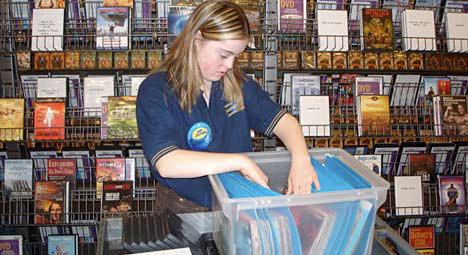
Gaining work experience is a great way for someone to explore occupations that might interest them in the future. (Working is also a great way for someone to figure out what they do not want to do!)
For people just beginning to think about life after school, part-time or weekend jobs are the most likely place to start. They might be limited in their choices by the opportunities available, but remember—even if a job doesn’t sound like the perfect fit, it can still teach valuable skills that will help them qualify for future opportunities.
Getting Started with a Resume
To begin, a person should have a resume ready to share with potential employers. A school guidance counselor can help, or if the person is not in school, local community resources and employment agencies are often available to assist.
Even without a “regular job,” include informal work like grass cutting, snow shoveling, babysitting, or running errands. These show responsibility and independence. Extracurricular activities can also demonstrate useful skills—sports, clubs, or volunteering are all relevant.
Don’t forget to keep the resume updated, especially if contact information or job experience changes. Also, consider certificates that improve qualifications—like babysitting, first aid, food handling, or swimming training. Include any awards or recognition to showcase accomplishments.
Use AI Tools to Build and Improve Your Resume
Free or low-cost AI tools like ChatGPT can help create or improve a resume. You can:
- Get a resume template tailored to your skills or experience level
- Receive suggestions for how to describe your work or volunteer activities
- Ask for help writing a cover letter or interview answers
- Review grammar and wording to make your resume more professional
If you’re not sure how to describe your past experience or skills, AI tools can help you put it into words—just type in what you’ve done and ask for feedback or suggestions. This can be especially helpful for youth, newcomers, or anyone writing a resume for the first time.
Leveraging Social Media and Creating a LinkedIn Profile
In today’s world, being online can help with finding work—especially for youth or job seekers looking to build a network.
LinkedIn is a professional networking site where you can:
- List your work, volunteer experience, and skills
- Connect with employers, agencies, and coworkers
- Follow companies you’re interested in
- Find job postings or be noticed by recruiters
- A strong LinkedIn profile includes:
- A clear, friendly photo
- A simple “About Me” section (e.g., “Motivated worker looking for a job in retail or customer service”)
- Past experience, skills, and any training
For more detailed tips of using LinkedIn visit this presentation [insert LinkedIn Webinar] or read the following article – How to Use LinkedIn to Boost Your Job Search: A Guide for Job Seekers and Supporters
AI tools like ChatGPT can also help you write your LinkedIn bio, summarize your experience, or give suggestions on how to present your skills online.
Other social media platforms—like Facebook, Instagram, or X—can also be helpful:
- Follow local businesses, recreation centres, or job agencies
- Join local job groups
- Watch for posts that say “We’re hiring!”
Be careful about what’s posted on personal accounts. Employers sometimes check public profiles. Keep it positive and professional.
Searching for Jobs
When looking for work, here are some ways to find opportunities:
- Enrol with MyJobMatch – a platform designed for persons with disabilities to find employment
- Look at community bulletin boards at rec centres, libraries, and grocery stores
- Visit government employment centres or websites like Job Bank Canada
- Explore job boards on municipal websites or Parks and Recreation departments
- Talk to your school, support worker, or employment agency
Sometimes opportunities are right around the corner. A walk through your neighbourhood might lead to “Now Hiring” signs. Ask for applications at stores or restaurants. Even if they’re not hiring immediately, many keep applications on file.
If you’re volunteering or in a co-op placement, let your supervisor know you’re looking for paid work—they might be open to creating a paid position.
Networking and Word of Mouth
Ask family, friends, teachers, neighbours, or anyone in your circle about job opportunities. Most people are happy to help and may know someone who’s hiring. Let others know what kind of work you’re looking for and what you’re good at. Many jobs are found through word of mouth.
Keep an Open Mind
Your first job likely won’t be your last. Early jobs help build confidence, independence, and valuable work habits. Even a short experience in customer service, cleaning, or stocking shelves can help lead to a long-term opportunity.
Stay open to new experiences, be willing to learn, and remember that every job—big or small—is a step toward your goals.
